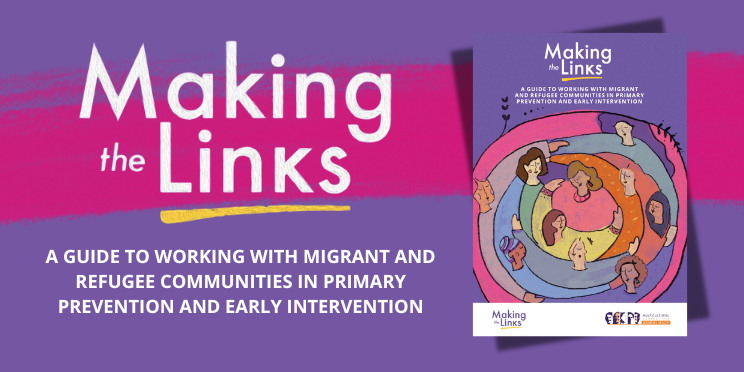
While mainstream family and domestic violence and sexual assault services have made significant strides in supporting migrant and refugee women who are at risk of or are experiencing sexual violence, there remains a gap in what constitutes best practice in awareness and education on sexual assault when engaging migrant and refugee communities.
MCWH has developed the resource 'Making the Links: a Guide to Working with Migrant and Refugee Communities in Primary Prevention and Early Intervention' to provide a framework in which to develop prevention activities for multicultural communities, as well as early intervention actions on how best to support migrant and refugee women who are at risk of experiencing sexual assault.
This resource is based on insights gathered from multicultural organizations and sexual assault services across Victoria in rural and regional areas who work with migrant and refugee communities, combined with MCWHs 45 years of experience in developing and delivering prevention and early intervention activities.
The resource presents six principles with accompanying recommendations to inform best practice. These include:
- Fostering community engagement and dialogue;
- Community ownership of prevention and early intervention activities;
- Centering migrant and refugee women's leadership;
- Organisations prioritising diversity, inclusivity and equity at all levels;
- Holistic and integrated education; and,
- Equitable collaboration and knowledge sharing.
This resource is funded by the Commonwealth Department of Social Services as part of the 'Making the Links' project which aims to understand the intersectional discrimination migrant and refugee women face in rural and regional areas when seeking help for safety.
This resource is part of the 'Making the Links' project which aims to understand the intersectional discrimination migrant and refugee women face in rural and regional areas when seeking help for safety.
Making the Links is funded by the Australian Government Department of Social Services
